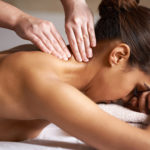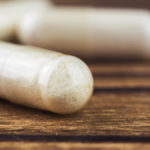Red Desert Clay for Better Bones?
Does edible red desert clay help build strong bones? Is it a heavy metal detoxifier? I’m wondering if it does what its supporters say it does.
Andrew Weil, M.D. | January 23, 2012

Supplements of edible clay (red desert clay, also called calcium montmorillonite), are being promoted on the internet and elsewhere for a wide range of health concerns. Among the many claims made for them is that the clay removes toxins from the body and strengthens bones.
Ingesting clay if it has properly sourced and packaged is probably harmless, but I doubt if it helps with detoxification. My own view is that the body does a good job of cleaning and purifying itself if you stop putting toxins in and focus on getting good nutrition, regular exercise, and develop other healthy habits. In fact, none of the many supplements and herbal products purported to detoxify the system and purify the blood are necessary to good health.
You can help the body rid itself of unwanted materials by drinking more pure water to increase urinary output, taking baths or saunas, which can help eliminate toxins through sweating, eating plenty of fiber-rich fruit, vegetables and whole grains to ensure regular eliminations, and getting enough aerobic activity to stimulate breathing.
I wouldn’t depend on red clay to help build strong bones either. To prevent bone loss, take 2,000 IU of vitamin D daily. Eat calcium-rich foods: high quality, organic dairy products such as yogurt and milk, sardines (with bones), dark green vegetables like collard greens, bok choy and broccoli, whole soy-based products like tofu, and calcium-fortified soymilk and orange juice. Women can take supplemental calcium – 500 to 700 mg a day in two divided doses taken with meals, and no more than 1,500 mg a day from all sources; calcium citrate is best. (Men should not take calcium supplements.) Take half the amount of magnesium as you do of calcium to offset the constipating effects of calcium.
Here are my other recommendations for keeping bones strong:
- Eat plenty of vegetables and fruit. Potassium, magnesium, vitamin C and beta carotene (found in fruits and vegetables) have been associated with higher total bone mass. A diet rich in vegetables and fruit and moderate in animal protein and grains may minimize the acid-ash residue of the diet.
- Make sure you’re getting vitamin K in your diet. Vitamin K regulates calcium in the body, keeping it in the bones and out of the arteries. The best sources are green leafy vegetables (see the calcium-rich greens listed above), but most vegetables are good sources. If you are taking a blood-thinning medication, talk with your doctor about vitamin K.
- Avoid salty processed foods and fast food. Don’t salt your food before tasting it. Some studies suggest that high dietary sodium is bad for bones.
- Limit caffeine intake. It can contribute to bone loss.
- Avoid alcohol or drink only in moderation. Alcohol can decrease absorption of calcium from the intestines and lead to deficiencies in vitamin D and magnesium.
- Try to do at least 30 minutes of weight-bearing activities, such as walking, weight training and calisthenics most days of the week. Getting regular physical activity is the most important thing you can do to avoid osteoporosis.
Andrew Weil, M.D.










